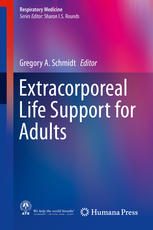

Most ebook files are in PDF format, so you can easily read them using various software such as Foxit Reader or directly on the Google Chrome browser.
Some ebook files are released by publishers in other formats such as .awz, .mobi, .epub, .fb2, etc. You may need to install specific software to read these formats on mobile/PC, such as Calibre.
Please read the tutorial at this link: https://ebookbell.com/faq
We offer FREE conversion to the popular formats you request; however, this may take some time. Therefore, right after payment, please email us, and we will try to provide the service as quickly as possible.
For some exceptional file formats or broken links (if any), please refrain from opening any disputes. Instead, email us first, and we will try to assist within a maximum of 6 hours.
EbookBell Team

4.8
54 reviewsThis book presents a concise, evidence-based review of extracorporeal life support (ECLS) for adult diseases. It describes the use of ECLS with patients who are experiencing severe hypoxemic respiratory failure (ARDS and pneumonia), ventilatory failure (status asthmaticus and COPD), cardiogenic shock and circulatory or gas exchange failure following complications in cardiothoracic surgery, as well as its use as a bridge to lung transplant. Historically, clinicians have used ECLS as a last resort; however, this text details the technological improvements, evidence of improved outcomes and adverse consequences of alternative treatments that are causing this modality to be more commonly adopted. Topics include a description of the complex physiology and technology underlying ECLS; the evidence base for its use in specific clinical conditions; vascular access techniques; daily management of the circuit and patient; guidance regarding the weaning and decannulation process and recommendations for crisis management and rehabilitation related to ECLS. Extracorporeal Life Support for Adults is ideal reading for practicing physicians, nurses, perfusion specialists, therapists and critical care trainees who are considering whether to refer their patients for ECLS or are already providing ECLS and are seeking a practical reference to best practices and updated information.